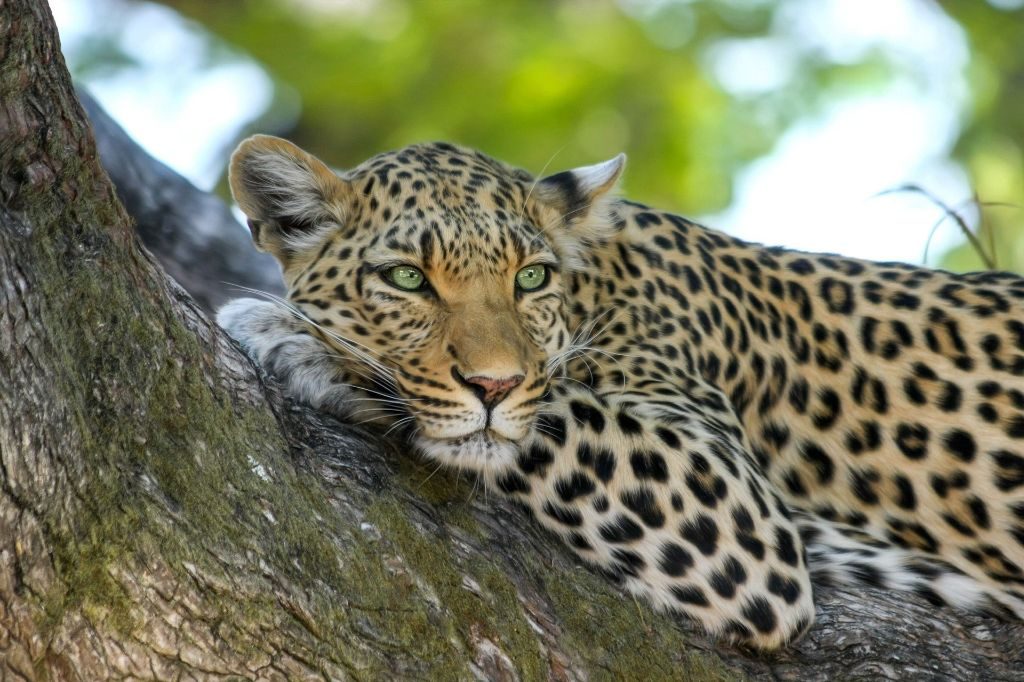The Ngorongoro Crater is a geological masterpiece formed millions of years ago by a massive volcanic eruption. Encompassing approximately 260 square kilometers, it is the largest inactive and unfilled volcanic caldera in the world. The crater floor is a rich tapestry of grasslands, forests, and wetlands, supporting over 25,000 large animals, including elephants, lions, and the critically endangered black rhino. Visitors to Ngorongoro can experience unparalleled wildlife viewing and stunning panoramic vistas.
- Ngorongoro Crater Rim: Offering stunning views of the crater below, the rim is perfect for photography and appreciating the vastness of this natural wonder.
- Olduvai Gorge: Known as the cradle of mankind, this archaeological site provides insight into early human evolution with fossils dating back millions of years.
- Lerai Forest: A lush forest on the crater floor, home to elephants, monkeys, and a variety of bird species.
- Lake Magadi: A shallow, alkaline lake within the crater, often visited by flamingos and other waterfowl.
Adventure Activities:
- Game Drives: Explore the crater floor on a guided safari, encountering diverse wildlife up close.
- Walking Safaris: Led by experienced guides, walking safaris offer a unique perspective of the flora and fauna.
- Bird Watching: With over 500 bird species, Ngorongoro is a birdwatcher’s paradise, featuring everything from raptors to waterfowl.
- Cultural Visits: Engage with the Maasai people and learn about their traditional way of life.
The Ngorongoro Conservation Area is not just a wildlife sanctuary; it’s also home to the Maasai people who live in harmony with nature. The Maasai culture, with its rich traditions and customs, adds a unique human dimension to the landscape. Visitors can learn about their traditional practices, including cattle herding and bead-work, and experience their warm hospitality firsthand.
- Best Time to Visit: June to October offers the best wildlife viewing, while the wet season (November to May) provides lush landscapes and fewer tourists.
- Entry Fees: Visitors need to pay a conservation fee, which contributes to the preservation of the area.
- Health and Safety: Ensure you have necessary vaccinations, malaria prophylaxis, and travel insurance. Always follow the guidance of your safari guide.
Featured Hotels
Stay in comfort and style at some of the best lodges and camps around Ngorongoro Crater, offering stunning views, excellent service, and close proximity to the wildlife.
Sample Itineraries
3-Day Safari: Day 1: Arrive at Ngorongoro Conservation Area, afternoon game drive in the crater. Day 2: Full-day safari exploring the crater floor, including visits to Lake Magadi and Lerai Forest. Day 3: Morning wildlife safari, visit Olduvai Gorge, departure. 7-Day
Adventure: Day 1-2: Arrive at Ngorongoro, start with acclimatization hikes and crater rim exploration. Day 3-4: Full-day crater safari, including picnic lunch and wildlife viewing. Day 5-6: Visit Olduvai Gorge and cultural tour with the Maasai people. Day 7: Leisure morning, optional hot air balloon safari, departure.
Luxury Retreat: Day 1-2: Fly into Ngorongoro, relax at a luxury lodge with crater views. Day 3: Enjoy private guided game drives and a visit to Olduvai Gorge. Day 4: Indulge in spa treatments and gourmet dining at your lodge. Day 5: Leisure day with personalized activities, departure.
Allow our Moran AI to find the perfect itinerary for you!
Our Featured Itineraries
Explore our curated selection of itineraries, designed to suit various travel styles and durations, ensuring a memorable safari experience in Ngorongoro Crater.
Key Conservation Initiatives
- Anti-Poaching Patrols: Intensive efforts to combat wildlife poaching and protect endangered species.
- Habitat Restoration: Programs focused on restoring degraded areas within the crater.
- Community Involvement: Engaging local communities in conservation through education and sustainable livelihood projects.
Conservation Organizations
- Frankfurt Zoological Society: Supports wildlife monitoring and anti-poaching efforts.
- African Wildlife Foundation: Works on habitat restoration and community engagement.
- Ngorongoro Conservation Area Authority: Manages the area’s conservation efforts and tourism activities.



